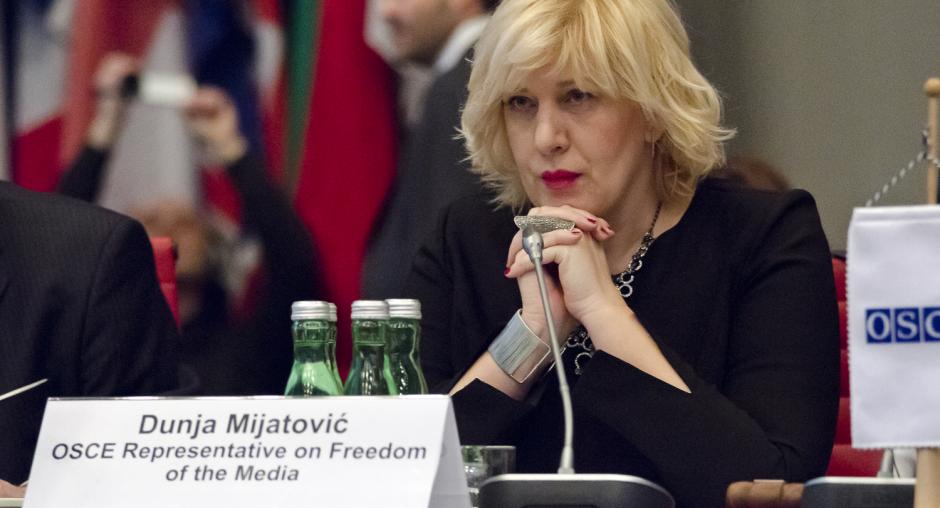New laws in Ukraine potential threat to free expression and free media, OSCE Representative says

VIENNA, 18 May 2015 – Following the Supreme Rada’s adoption on 9 April of the law “On condemnation of the Communist and Nazi totalitarian regimes in Ukraine and banning of propaganda of their symbols,” OSCE Representative on Freedom of the Media Dunja Mijatović on 15 April wrote to the President of Ukraine, Petro Poroshenko, asking for his careful consideration of the law before approving it. The law was signed by the President on 15 May.
“It is discouraging for freedom of expression and media freedom advocates that the law has gone into effect, despite various calls to safeguard these basic rights,” Mijatović said.
The law criminalizes public denial of the activities of these regimes and bans all related symbols, except for restricted educational or scientific purposes. Violation of the law carries a penalty of potential termination of activities of media and prison sentences for five to ten years.
“While I fully respect the often sensitive and painful nature of historical debate and its effect on society, broadly and vaguely defined language that restricts individuals from expressing views on past events and people, could easily lead to suppression of political, provocative and critical speech, especially in the media,” Mijatović wrote.
The Representative also commented on the law “On the legal status and honouring of fighters for Ukrainian independence in the twentieth century.” The law, also signed by the President on 15 May, introduces liability for publicly expressing disrespect for certain groups of fighters for Ukrainian independence in the 20th century and criminalizes public denial of the legitimacy of their fight for Ukraine’s independence.
“The media is a vital element of a healthy democracy and its role should be respected at all times,” Mijatović said. “Contested information and potentially problematic speech should not be banned, on the contrary, it should be addressed through an open debate.
“Disproportionate restrictions on media freedom can never be justified in a democratic state and Ukraine’s significant progress in this area should be preserved, not undermined,” Mijatović said.
Mijatović also noted that representatives from civil society had not been given the opportunity to participate in public discussions about the laws.
The OSCE Representative on Freedom of the Media observes media developments in all 57 OSCE participating States. She provides early warning on violations of freedom of expression and media freedom and promotes full compliance with OSCE media freedom commitments. Learn more at www.osce.org/fom, Twitter: @OSCE_RFoM and on www.facebook.com/osce.rfom.
